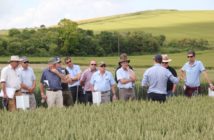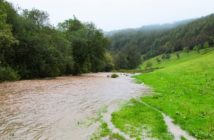As part of its regular portfolio review, BASF is refocusing its plant biotechnology research portfolio and will restructure its Plant Science operations. The company will adjust the site footprint of its plant biotechnology research and development network in North America and Europe and intends to reduce approximately 350 positions, thereof 140 positions in North America and 180 in Europe. Currently approximately 700 employees work in plant biotechnology R&D.
Research and field sites in Research Triangle Park, North Carolina; Ames, Iowa; Berlin and Limburgerhof, Germany; Ghent, Belgium; and Brazil will be kept but are planned to be reduced in size. The field testing sites in Kekaha, Hawaii, as well as the sites in India and Puerto Rico will be closed. The restructuring is expected to be completed by the end of 2016.
“We are confident that by refocusing our plant biotechnology portfolio, we will enable BASF to bring the most promising research projects to success. We will discontinue projects with extremely high technical challenges, which would require significant time and financial investment,” said Dr. Harald Schwager, member of the Board of Executive Directors of BASF, responsible for Bioscience Research.
The plant biotechnology research portfolio will focus on high potential projects in herbicide tolerance and fungal resistant soybean. The project on polyunsaturated omega-3 fatty acids in canola seeds will also be continued. The yield and stress collaboration agreement regarding corn and soybean with Monsanto is not affected. Discovery and early development projects in yield and stress, including corn and soybean will be streamlined, rice yield as well as corn fungal resistance projects will be discontinued.



